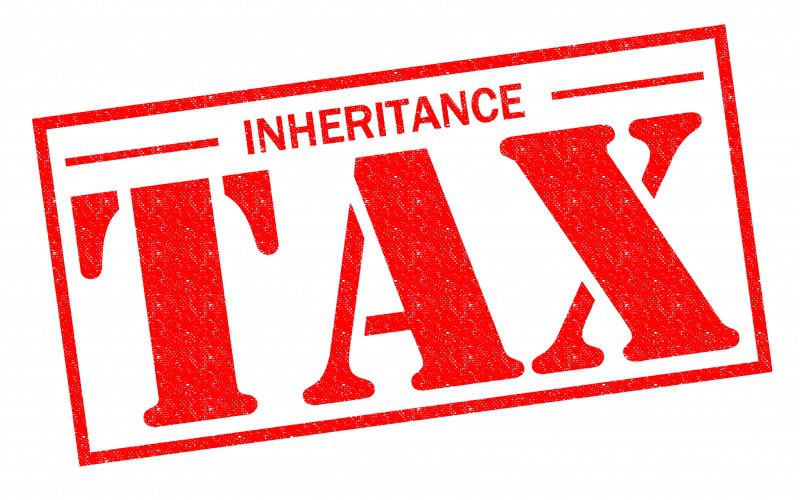
Inheritance tax, even though only one in 25 estates are subject to it, is probably the most loathed tax levied in this country.
That is clearly understood by nearly every politician.
George Osborne’s promise at the 2007 Conservative Party conference to lift the inheritance tax threshold to £1m enjoyed such a rapturous reception that it frightened Gordon Brown out of calling a snap election that autumn.
So any attempt to raise inheritance tax is likely to be politically toxic.
It must be for that reason that the government is currently sneaking a policy, which has a very similar effect, through the back door.
Ministers want to raise the fees charged by the courts for probate, the process by which a dead person’s estate is wound up, their debts settled and their assets distributed in accordance with their will.
At present, the courts levy a flat probate fee of £215, or £155 if the application for probate is made by a solicitor.
However, ministers instead want to introduce a sliding scale of fees depending on the value of the dead person’s estate, which it is estimated could result in 300,000 families paying higher probate fees every year. It is mooted to raise £145m in its first year.
Under the new system, there will be six bands of fees, with estates valued at between £50,000 to £300,000 being charged £250. Estates of between £300,000-£500,000 would attract a fee of £1,000.
Between £500,000 and £1m – a likely level for estates in London and the South East of England, given house prices in that part of the country – the fee ratchets up to £4,000, while estates of between £1m and £1.6m will be charged £8,000.
Estates of between £1.6m and £2m will attract a fee of £12,000 while any estate valued at over £2m will be charged £20,000.
So what? You may say. Anyone inheriting £2m will surely not begrudge paying the courts £20,000 to get their hands on the money.
That may be true – but there are a couple of important principles at stake here.
The first is that ministers have admitted the cost of granting probate is the same for every estate, regardless of the size of that estate. There is no extra work or court time involved in administering a bigger estate.
So charging fees that vary according to the size of the estate clearly amounts to what has rightly been described by the Law Society, among others, as a stealth tax. And tax increases are usually voted on by parliament.
This is the second point; ministers have not had the decency or courage to bring this measure in via primary legislation.
Instead, it is being sneaked through via a “statutory instrument” – a way of bringing a measure into force without an act of parliament needing to be passed.
The latest meeting of the committee considering the measure – the 14th Delegated Legislation Committee – voted to approve it on Thursday last week by 9-8.
To their credit, Labour MPs on the committee voted against the measure but it still scraped through thanks to the Conservative majority.
This, then, risks creating a dangerous precedent in which taxes can be increased without being subjected to a parliamentary vote.
How does the government justify this grubby behaviour?
According to Lucy Frazer, the junior justice minister, the new fees uphold the government’s commitment to “protecting access to justice by ensuring we have a properly funded and resourced courts system”.
Fair enough, except that the courts are supposed to be funded via general taxation.
Ministers will argue that fees are fees and taxes are taxes but, by introducing a sliding scale of fees dependent on the size of the estate being administered, they are turning the former into the latter.
That also flies in the face of the Treasury’s time-honoured objection to hypothecated taxes (setting a specific tax to fund a specific measure).
And, in any case, since when was it the job of grieving families to subsidise the courts system?
Moreover, after probate fees have been increased, it is likely that some families will struggle to come up with the fees up front.
Astonishingly, when The Sunday Times put this point to Ms Frazer last week, she responded by saying that they could always take out a loan.
There could also be other implications. The Institute for Family Businesses has pointed out that where a family company forms part of the estate, some families could be forced to sell of parts of their enterprises, or invest less, in order to pay the increased fees.
Most surprising about this shabby behaviour is that it comes courtesy of the Ministry of Justice, headed by the Lord Chancellor, David Gauke.
One expects better from one of the most sensible and level-headed figures in government and certainly more from a Conservative Party that purports to be the party of the family.
All is not lost. The order is now awaiting final approval by the House of Commons. Usually, statutory instruments are nodded through but can be upended if MPs object on the floor of the Commons.
There is a great opportunity for an MP to make a name for themselves here by burying this cruel policy and preventing an awful precedent being set.
